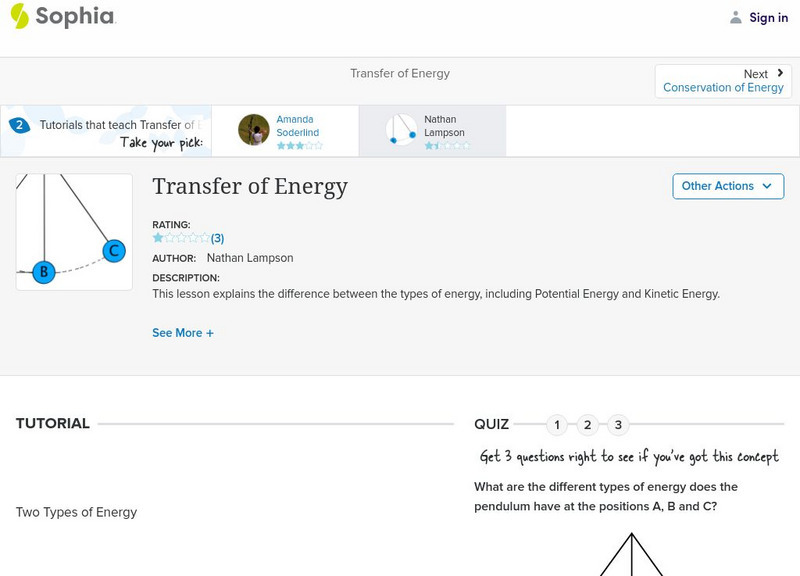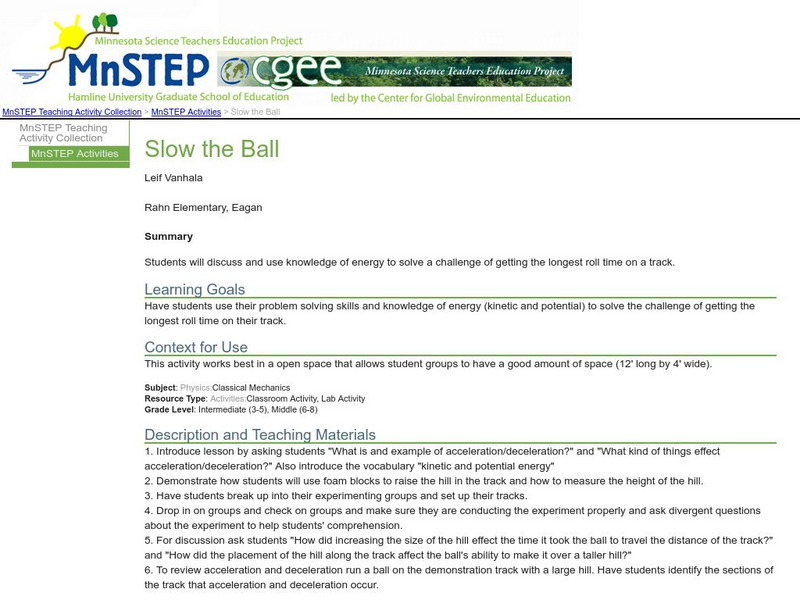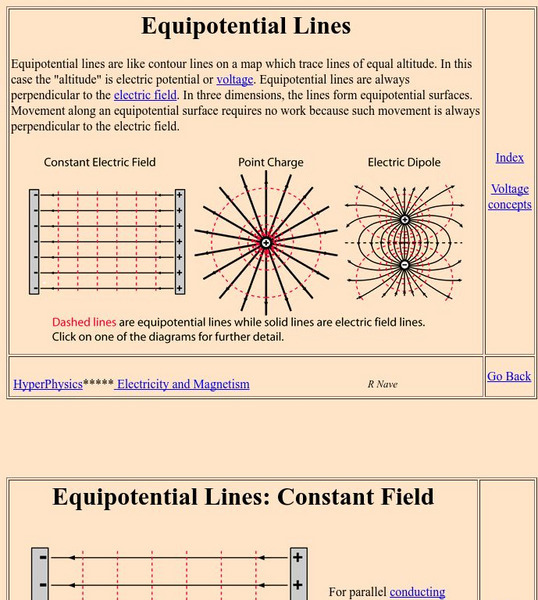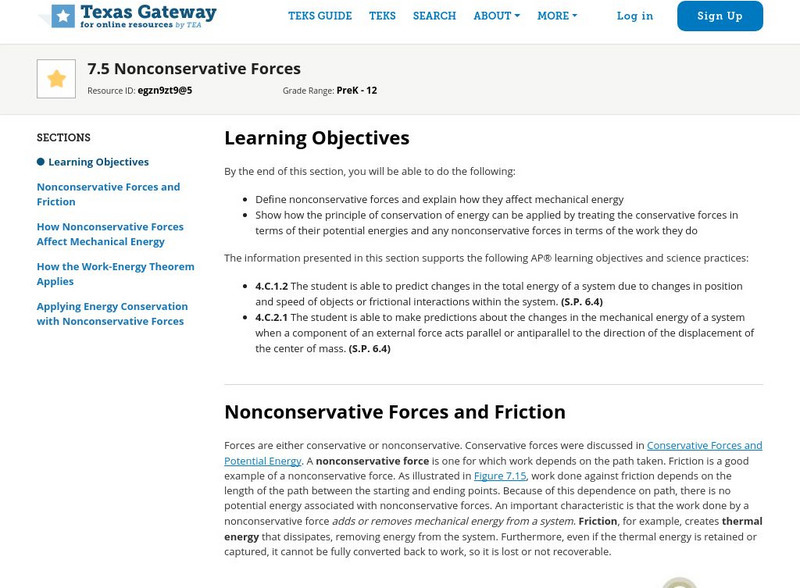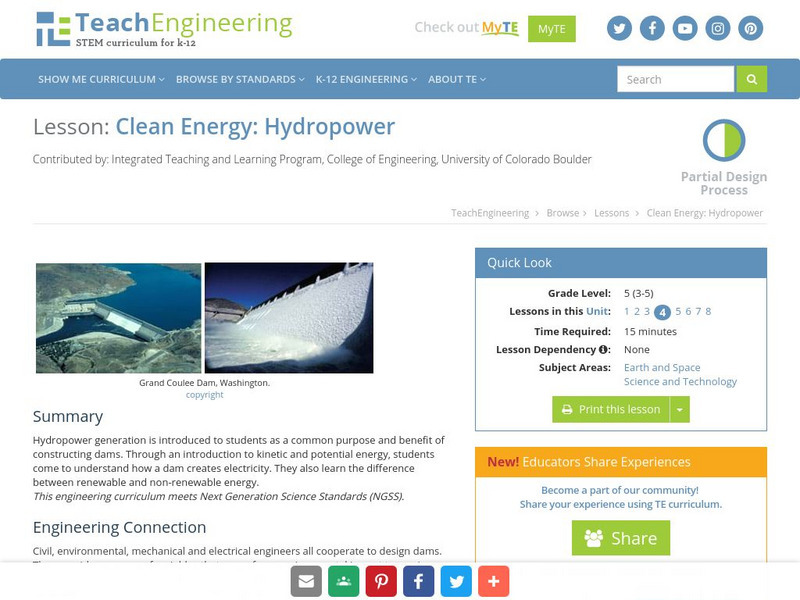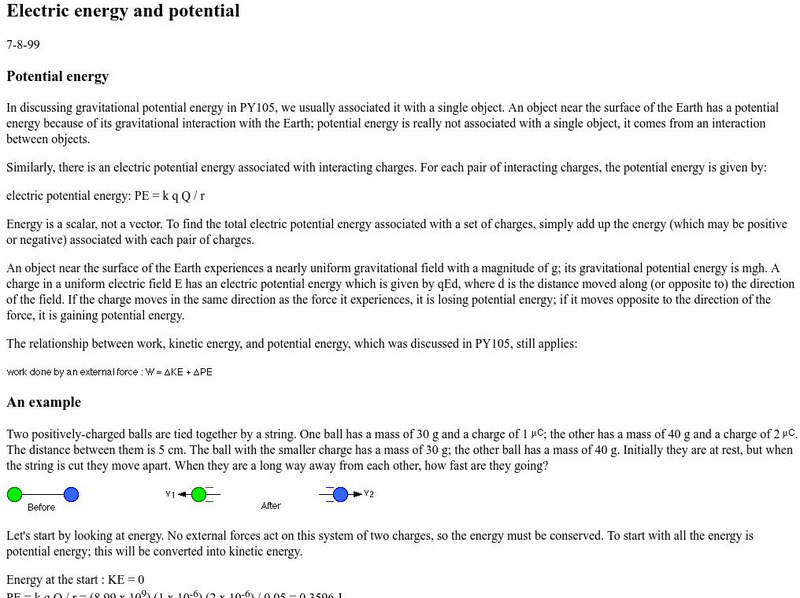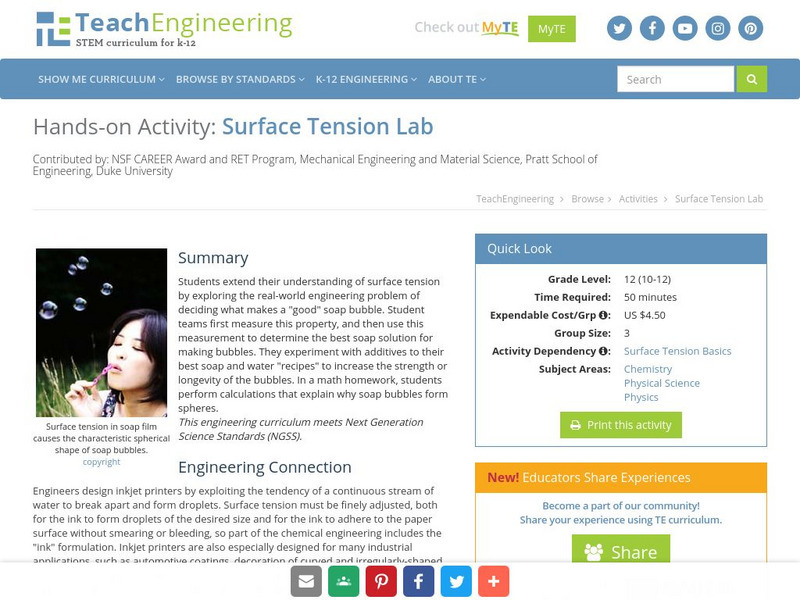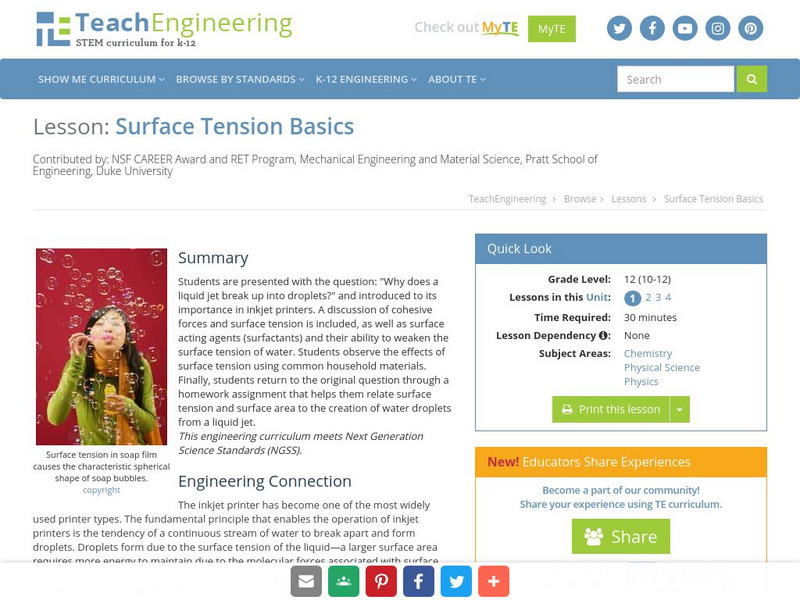NASA
Nasa: From Stargazers to Starships: Energy
Demonstrates how principles of kinetic energy, potential energy and energy conservation can be used to determine the speed of a descending object if given its initial height. Further discussion of other topics such as heat and...
Sophia Learning
Sophia: Transfer of Energy: Lesson 2
This lesson explains the difference between the types of energy, including Potential Energy and Kinetic Energy. It is 2 of 2 in the series titled "Transfer of Energy."
Other
Maths Revision: Work, Energy & Power
Basic definitions and examples for the concepts of work, energy, and power. Covers kinetic and potential energy, and conservation of energy.
Learn AP Physics
Learn Ap Physics: Physics B: Work and Energy
A site dedicated to help students prepare for the AP Physics B test. This specific site reviews work and energy including work-energy theorem, conservation of energy, potential energy and power. Site contains links to video lectures and...
Ducksters
Ducksters: Physics for Kids: Kinetic Energy
Kids learn about kinetic energy in the science of physics. The energy of motion can be calculated using mass and velocity. The standard unit is the joule. How it is different from potential energy.
Science Education Resource Center at Carleton College
Serc: Mn Step: Slow the Ball
For this experiment, students will design a track for a rolling ball to try to have the longest roll time possible. They will, in the process, apply their understanding of kinetic and potential energy, and acceleration and deceleration.
Cosmo Learning
Cosmo Learning: Engineering Mechanics
A collection of video lectures from a course introducing students to engineering mechanics. Webpage includes forty lectures from a professor at the National Programme on Technology Enhanced Learning. Lectures vary in length and cover...
Georgia State University
Georgia State University: Hyper Physics: Point Charge Potential
This site from the Georgia State University explains the concept of electric potential about a point charge or combination of severat point charges. An interactive JavaScript form allows the visitor to investigate the effect of distance...
Georgia State University
Georgia State University: Hyper Physics: Equipotential Lines
At this site from the Georgia State University, the equipotential lines around several different configuration of charges are shown and described. Excellent graphics and clear discussion.
McGraw Hill
Online Learning Center: Electric Potential and Capacitance
A series of pages which define key terms and explain basic concepts related to electric potential. Includes a set of practice problems with answers and solutions.
University of Colorado
University of Colorado: Ph Et Interactive Simulations: Energy Skate Park
Learn about conservation of energy with a skater dude. Build tracks, ramps, and jumps for the skater and view the kinetic energy, potential energy and friction as he moves.
TeachEngineering
Teach Engineering: The Car With a Lot of Potential
Working in teams, students perform quantitative observational experiments on the motion of LEGO MINDSTORMS NXT robotic vehicles powered by the stored potential energy of rubber bands. Students understand that through the manipulation of...
Georgia Department of Education
Ga Virtual Learning: Electric Fields and Electric Potential
In this interactive lesson unit, students will learn about electric fields and charge density. They will explore electric field diagrams and learn how they are used, as well as discover electrostatic potential energy and how it relates...
TeachEngineering
Teach Engineering: Energy
Through nine lessons, students are introduced to a range of energy types--electrical, light, sound and thermal-as well as the renewable energy sources of wind, hydro (water) and solar power. Subjects range from understanding that the...
Texas Education Agency
Texas Gateway: Nonconservative Forces
By the end of this section, you will be able to define nonconservative forces and explain how they affect mechanical energy, and to show how the principle of conservation of energy can be applied by treating the conservative forces in...
Science Buddies
Science Buddies: Roller Coaster Marbles: How Much Height to Loop the Loop?
This is a really fun project even if you don't like going on roller coasters yourself. You'll build a roller coaster track for marbles using foam pipe insulation and masking tape, and see how much of an initial drop is required to get...
TeachEngineering
Teach Engineering: Clean Energy: Hydropower
Hydropower generation is introduced to students as a common purpose and benefit of constructing dams. Through an introduction to kinetic and potential energy, students come to understand how a dam creates electricity. They also learn the...
TeachEngineering
Teach Engineering: Dams
Through eight lessons, students are introduced to many facets of dams, including their basic components, the common types (all designed to resist strong forces), their primary benefits (electricity generation, water supply, flood...
TeachEngineering
Teach Engineering: Intro to Engineering
Students are introduced to the basic principles behind engineering and the types of engineering while learning about a popular topic - the Olympics. The involvement of engineering in modern sports is amazing and pervasive. Students learn...
Science and Mathematics Initiative for Learning Enhancement (SMILE)
Smile: Potential Energy: How Is It Related to Kinetic Energy
After creating three different ramps with various heights, students will release toy cars from the tops of each ramp. Based on the elementary age level, students will collect data and analyze it.
Boston University
Boston University: Electric Energy and Potential
Scroll down about 1/2 the page to read about what electric potential is. The equation for its computation is given along with its relation to electric potential energy.
Other
Bc Open Textbooks: Energy and the Simple Harmonic Oscillator
This resource examines how to determine the maximum speed of an oscillating system. It discusses how the concept of law of energy can be applied in solving these types of problems.
TeachEngineering
Teach Engineering: Surface Tension Lab
Students extend their understanding of surface tension by exploring the real-world engineering problem of deciding what makes a "good" soap bubble. Student teams first measure this property, and then use this measurement to determine the...
TeachEngineering
Teach Engineering: Surface Tension Basics
Students are presented with the question: "Why does a liquid jet break up into droplets?" and introduced to its importance in inkjet printers. A discussion of cohesive forces and surface tension is included, as well as surface acting...
Other popular searches
- Kinetic and Potential Energy
- Potential Energy Diagram
- Gravitational Potential Energy
- Kinetic Potential Energy
- Elastic Potential Energy
- Calculating Potential Energy
- Physics Potential Energy
- Potential Energy Pendulum
- Kinetic vs. Potential Energy
- Forms of Potential Energy
- Potential Energy and Water
- Kinetic vs Potential Energy

